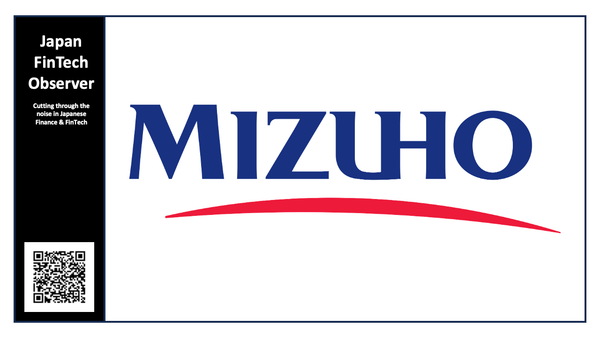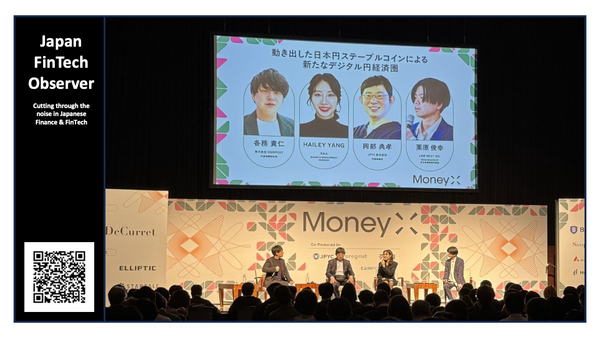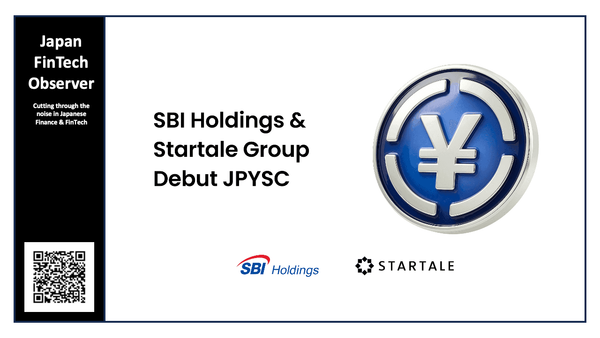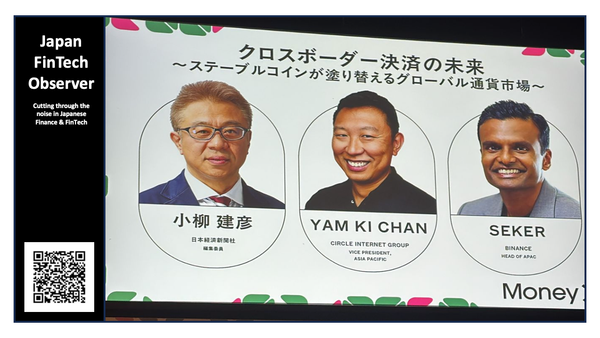Sushi Tech #2 - Japan Through the Eyes of Global Top-Tier VCs
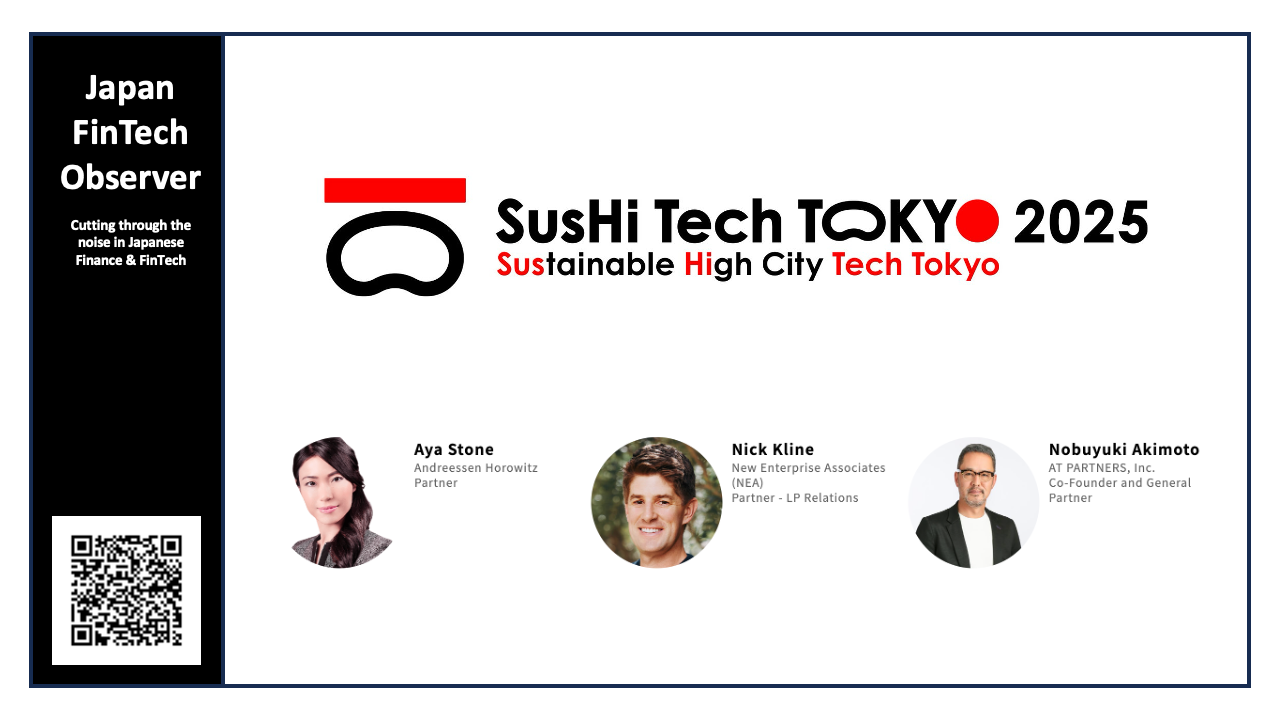
Global VCs are increasingly drawn to Japan, recognizing its evolving tech scene, strong research capabilities, and a rising generation of talent embracing entrepreneurship. They seek startups with global visions, a "Silicon Valley" mindset, and the potential to disrupt industries beyond Japan's borders. While Japan's "Garapagos" effect and slower corporate decision-making pose challenges, government initiatives are easing entry for foreign talent and fostering innovation. VCs prioritize partnerships with local Japanese entities to navigate complexities and support portfolio companies.
Key areas of interest include AI, robotics, healthcare/biotech, and the content industry. Successful Japanese startups will leverage these strengths, forge relationships with overseas accelerators, and build teams with strong business English. While challenges remain in capital availability and exit opportunities, VCs are hopeful that the combination of Japanese talent, strategic partnerships, and a global outlook will create a thriving ecosystem, producing globally competitive companies. A global partnership model is what they are looking for.
Panelist Introductions
Aya Stone (Andreessen Horowitz)
Stone introduced herself as a Partner at Andreessen Horowitz (a16z), focusing on capital formation. She emphasized that a16z is one of the largest venture capital firms globally, founded by entrepreneurs Ben Horowitz and Marc Andreessen. The firm invests across six different software sectors. Stone highlighted their increasing focus on Asia, including Japan, expressing excitement to discuss the opportunities present in the Japanese market.
Nick Kline (NEA)
Kline presented himself as a Partner at NEA, a US-based venture capital firm with almost 50 years of experience. NEA's mandate is broad, investing in both technology and healthcare companies, which Kline described as two of the most alpha-rich and alpha-generative parts of the global economy for their limited partners. He mentioned that NEA has backed household names like Workday, Salesforce, and Databricks. Similar to Stone, Kline mentioned NEA's increased focus on the Japanese market and their enthusiasm for the conversation.
Nobuyuki Akimoto (AT Partners)
Akimoto shared that he is a Co-founder of AT Partners, a fund-of-funds investment firm focused on investing in top-tier venture capital funds outside of Japan, including NEA. Akimoto described AT Partners as a bridge between global-level startups and large Japanese corporations.
How Venture Capital Markets Have Evolved
Akimoto's first question asked how venture capital markets had evolved and how top-tier VCs were adapting to these changes.
Aya Stone - Scale, Specialization, and Software's Power
Stone stated that the US venture capital market has undergone a significant evolution. In her view, two key changes are the power of software and the rise of specialization. Software has become a pervasive technology that is transforming sectors from healthcare and education to national security. As Marc Andreessen famously proclaimed in 2011, "Software is eating the world." This is dramatically illustrated in the increase of successful start-ups with over 100 million in ARR (annual recurring revenue), growing from 12-15 to hundreds.
For the VC's, Stone suggests that requires a willingness to consider significantly larger opportunities, which is also one of the keys to success, and in particular with recent high-interest rates the willingness to take a chance. With this the size of venture capital funds is growing accordingly, as well as their operational capacity.
Stone highlights Andreessen Horowitz's operation team of 350 people, who provide wide range of operation services to startup ventures. This includes team talent development, government affairs, and marketing.
Nick Kline - Scale, Specialization, Resourcefulness
Kline agrees with Stone, that scale is more important than ever, as he also highlights NEA's status as a megatrend US fund, with a mandate to work at scale. For 50 years NEA has believed in the power of scale. Kline notes, private companies are creating so much value, that venture funds must be scaled accordingly to match. The firm is particularly focused on how to scale in additional capital.
Also, the firm believes that the investment horizon is now being split into two groups: one group is small, dedicated firms and the other group has scale. One group is focused and niche, while the other can provide their companies with the resources and support needed. NEA views itself in the second camp and is dedicated to surrounding its companies with resources, which includes talent development, go-to-market strategies, and technical advice.
Strategic Investors: Corporates and CVCs
Akimoto observed that LP (limited partner) bases appear to be changing, with more strategic investors, such as CVCs (corporate venture capital). He asked Stone and Kline if they had specific teams, organizations, processes, or activities to support these strategic investors.
Nick Kline - Aligning Interests
NEA has a long history of working with Japanese LPs, having done so for over 20 years. Now they're seeing increasing interest from Japanese CVCs, who want to invest in targeted sectors. NEA partners with several of these, knowing their value of knowledge of software, consumer, and healthcare investment. The firm tries to map its areas of expertise onto investors goals in a mutually beneficial and strategic model. These include financial investors, strategic investors, and government investors.
Aya Stone - AI and Technology
Andreessen has been getting a lot of inquiries from corporations, who are particularly interested in new technology, because of what it can offer their portfolio. Now that Japanese corporations are aware of new technology available in the US, they are looking for advice from companies who have experience in this sector. Japan is also starting to realize how they can leverage the AI and technology sector to build their future growth potential.
The Challenge with Garapagos
Aya points out that Japan is often labeled as "Garapagos", and that comes with unique challenges when it comes to localizing foreign technology. Two of the most specific challenges are localizing software into Japan's language, and adapting all of the various customer demand differences. This is now slightly different, because AI's language model diminishes translation costs. In addition, many companies are starting to see how they can work with start-ups differently.
Another challenge has historically been the time it takes to conduct projects. When working with Japanese corporations, start-ups will report of three, six, and even two-year projects that go absolutely nowhere. But there have been some improvements as of late, as senior level employees at conglomerates are starting to take calculated risks on AI technology and leverage their data for improved performance.
Evaluating the Japanese Market: Opportunities and Challenges
Akimoto asked how the panelists evaluate the Japanese market for their portfolio companies, questioning if it's attractive enough, if it's large enough, and if it's a gateway to the larger Asian market.
Nick Kline - Building a Mutually Beneficial Ecosystem
NEA has set out to do this by partnering with various investors (financial, corporate, and government) and leveraging their experiences. The main goal is to establish an ecosystem, while keeping the overall process brief enough to cater to startups. Nick also points out that US markets can distract venture capital, and many funds are only open to taking the next opportunity if they can leverage it to work globally.
The VC and firms can aid the process by connecting firms to people like Akimoto. One of NEA's greatest examples of doing this is Salesforce, which is one of the biggest markets in Japan today. Many ageing populations in America and Japan are creating new opportunities in the healthcare and medical sector, which are the trends that NEA is interested in exploring and aiding.
Aya Stone - Global, Powerful, Potential
Most top Japanese companies are already global players, so that unlocks a lot of new potential opportunities. The goal is to walk alongside the Japanese corporations, and unlock the country's existing markets. A challenge with this can often be pinpointing the correct decision makers, and learning to navigate the various levels of an existing corporation.
While it's been difficult in the past, things are starting to change. For that reason, Andreessen Horowitz is committed to future partnerships.
One area of success, according to Stone, is their collaboration with NTT Docomo. Since they have a clear synergy, they've been able to leverage NTT Docomo's data infrastructure, networks, and subscriptions for data and knowledge of the market. Now that they've been able to partner, it's given them a lot more access to both technology and talent.
Stone adds that in similar fashion, they have signed a strategic partnership with Eleven Labs. This and all collaborations have been a lot more private, so further disclosure cannot be given.
Japanese Start-ups: Talent and Potential
Akimoto shifted the focus to Japanese start-ups, asking Stone and Klein to share how they evaluate Japanese start-ups as investment activities.
Nick Kline - Talent, Shift, Capital
Japan is nothing new from a business perspective, but NEA has dedicated a lot more time in the country as of late to explore its potential and start-ups. He has a crawl, walk, run motto when it comes to strategic investments. He sees many of those same ingredients at NEA today. He believes there is an adequate market, hungry customers, and a clear talent shift that's starting to emerge, thanks in part to US graduates who studied Japanese economics. This he notes, has served as a major indicator that the sector will continue to change and evolve.
A problem to be faced with that is growth capital. Currently, most funds raise a Series A or Series B before losing capital, but that's starting to change too. Now international firms like NEA have found an increased global interest, and have provided the opportunity for investment firms to have access to growth capital. These investments are often seen in companies that operate and perform with global ambitions.
These are all thanks to forward-thinking programs and government efforts. The overall combination is one that's highly encouraging.
Aya Stone - Talent, Research, Local Understanding
Agreeing with all the factors Kline mentioned, Stone further notes that top entrepreneurs are going to do top work, regardless of where they are in the world. While VC firms are investing into markets, that includes investing into markets, people, and understanding where talent exists.
When it comes to AI, most of the best technology comes from the US market, including large institutes like Berkley, Stanford, and MIT. In similar fashion, a lot of talent comes from Google, Microsoft, and Meta. Andreessen maintains great relationships with each of these parties, and tries to remain aware of talent who might be opening up an entrepreneurial opportunity.
However, Andreessen believes that deep local connections are needed to make informed decisions about global talent. That level of local knowledge can prove invaluable with the correct talent. But for that to work, these factors must all be used in the correct balance.
Robotics has also proved to be one of the great areas of opportunity, as Japan has more technology departments than any other country. By enabling more AI technology, the sector will continue to grow by allowing robots to perceive and think.
The Chicken and Egg Problem: Size of Exit
Akimoto proposed a "chicken and egg" problem: Japan wants more unicorn companies, which requires start-ups aiming for global markets, which need help from top-tier VCs outside of Japan. However, the size of the exit of Japanese start-ups may not fit VC's criteria. He asked for opinions and solutions to this dilemma.
Nick Kline - Mindset Shift
Kline noted a change of mindset regarding entrepreneurs that spend some time in the US.
There is definitely a "mindset shift", according to Kline, and that can be a major opportunity. In the past, start-ups would try to predict when they'd go global and announce when and where that would be, in the US, that would never enter a meeting. There has also been a big issue with what types of talent are available, because Japanese citizens didn't view start-up firms as something to get involved in. However, Kline has been watching the global landscape for years, and sees massive advantages for those who can see opportunity and make great investments.
Aya Stone - U.S. Mindset Shift
The US market is undoubtedly much deeper than Japan's, and the scale of its unicorns is evolving rapidly. Stone wants to see the mindset shift for unicorns as well. She uses DataBricks, a company valued at $75B that her company helped invest in and grow in their journey over a decade. The goal is to invest with the mindset that the future of technology needs to keep moving forward. She encourages start-ups to shoot for $50B or even $100B goals, instead of being content with $1B. She believes it will take some time before we start seeing all of these come together, but overall, she remains hopeful.
Practical Advice to Japanese Start-ups
Akimoto asked for some good advice for Japanese start-ups seeking investment from top-tier VCs outside of Japan.
Nick Kline - Leverage Local VC Connections, Global Vision
Kline advised maintaining close relationships with local Japanese venture capital funds. This is how most overseas capital makes its way through markets. He notes that they can help with product market performance, building of a team, and fluent communication skills, including English. For these efforts to be truly successful, it must be coupled with a global vision for the company that will prove valuable for foreign investment funds to work with.
Because Kline is new to this market, he is excited to keep working with companies who maintain strong growth and partnerships.
Aya Stone - Mutual Dialogue, Open Doors
It needs to be a mutual process. Venture capital, seek out top talent. But those top talent has to seek out venture capital for partnerships. That can only happen if all parties are able to see and explore opportunities, and open their doors to potential investment or talent. There must be a mutual willingness.
Also, Stone recommends having top members seek out Y Combinator.
She highlights Blockchain Team, and their Game Stream. Their office will welcome any who are open to working with them, giving teams time to train with their office. She emphasizes a need to build a top company, and be open to new ideas and people. With hard work and proactive thinking, they'll be ready to take the industry on.
No Physical Office in Japan
Akimoto highlighted that neither a16z nor NEA has a physical office in Japan. He asked how they can support their portfolio companies in Japan without a local presence.
Nick Kline - Lean on Partnerships
Kline explained that building a strong network of local partners is key for success.
Kline shares that having strong local partners and investors has proven to be beneficial. This partnership is key for success, including what happens in their offices with all visitors. While they haven't opened their doors yet, Kline is hopeful that future circumstances will allow for it. For now, it makes sense to partner, with plans for a "crawl, walk, run" method that proves to be sustainable for years to come.
Aya Stone - Leverage Power, Learn to Partner
The main thing that needs to be understood, is this business is a partnership. Often, larger corporations will prove to have a lot of power and resources that start-ups can leverage. It's not just limited to Japan, but it happens that there will always be limited resources as a firm, and with that, the learning to leverage of other sectors becomes important.
Japan, is now working with several partners and strong local investors, which helps with CVC and government efforts. She applauds the efforts made by Japanese Prime Minister for his five-year start-up project.
Stone believes that the goal of Japan is to get to a point of accepting talent. For that to work, several things still need to change, like opening bank accounts, finding business partners, and renting apartments. However, from a macro perspective, she is now ready to embrace entrepreneurship and accept a lot of new talent.
Strategic Investors and the Future
Akimoto asked if Stone and Kline anticipated having more strategic investors in the near future.
Nick Kline - Partnership Model
Kline answered positively, and noted that many of their strategic investors have already set up offices in Silicon Valley and maintain a very close relationship. Also, in Park's Square, one can just reach out and shake the hand of an interested investor.
Aya Stone - Private Equity
Agreeing with Klein, Stone thinks private equity, will become a lot more attractive soon.
Final Advice to Start-Ups
Akimoto asked for some final good advice for start-ups before they can seek investment from top-tier VC's:
Nick Kline - Silicon Valley Influence
The importance of engaging with US-based accelerators. Focus on Silicon Valley, and be influenced by them.
Aya Stone - Proactive Collaboration
A proactive program can help new entrepreneurs to grow and work together to solve problems, for a global presence.

